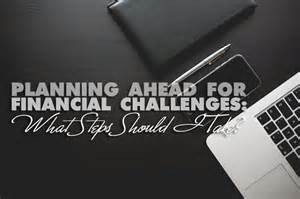I’ve been at my wit’s end – my critics could say that this is actually not very far for me to have to travel – trying to turn financial-planning theory into something a bit more practical. What I have come up with is a series of checklists, each designed to summarise the sort of things one should be thinking about at different stages of one’s life. If you are a financial planning virgin, then I would recommend you email me for my previously published RTE LifeStyle article Prepare your own financial plan in 15 minutes as this explains what I am talking about in detail. If you don’t have the luxury of 15 minutes to spare, here is the 15-second version:
- Decide what you want to achieve, and over what period.
- Work out what action you need to take to achieve it.
- Take the required action.
- Monitor the results and change your tactics if things are not going according to plan.
A big part of this process is going to involve choosing the right financial products for your needs. A few words of warning: think carefully before you buy any financial product because someone has told you that you should. A good example of this is the way mortgage brokers and lenders push life cover on people without partners and/or dependants. I mean, why worry about paying off your mortgage after you’re dead if there is no one you actually want to benefit?
Young and free ?
Young? No responsibilities? Anyone who tells you to ‘enjoy it while you can’ is not your friend. I mean, yes, obviously, enjoy it. But this shouldn’t preclude planning for the future. Here are the key action points you may want to consider:
- Creating an emergency fund to cover unexpected expenses.
- Paying off any personal or student loans.
- Short-term saving for cars, holidays and so forth.
- Income protection in case you are unable to work for any reason.
- Starting a pension plan. It is never too early.
- Saving for major purchases, such as the deposit to buy a home.
Relationship ? Children ?
If you settle down with a partner, your financial priorities will almost certainly alter, especially if you have children. The financial actions you may want to be thinking about include such thrills as:
- Creating an emergency fund.
- Protecting both your incomes (if relevant) in case you are unable to work.
- Life insurance for both you and your partner.
- Buying a home with the help of a mortgage.
- Whether you should be saving money in case you want to send one or more of your little darlings to private school and/or in case one or more of them wants to enjoy the benefits of further education.
- Retirement planning.
- Short-term saving for cars, holidays and so forth.
If you have built up any debt, then becoming debt-free should be a priority.
The Middle Years
Financial priorities in your middle years will vary according to how much money you have earned during your twenties and thirties – and how you have spent or invested it. For some, it can be a period of relative affluence with a higher level of disposable income becoming available; for others, it is a period of worry as retirement looms. Your priorities may include any or all of the following:
- Creating an emergency fund.
- Protecting both your incomes (if relevant) in case you are unable to work.
- Life insurance for both you and your partner.
- Paying off your mortgage and any other debts.
- Retirement planning.
- Short-term saving for cars, holidays and so forth.
- Planning for long-term care if you are worried that your pension and/or the State may not provide for you sufficiently.
Although pension planning should have been a priority as soon as you started work, the truth is it is not until many people are in their forties or even their fifties that they begin to consider their retirement. Providing for a comfortable old age, therefore, may be the most pressing need.
Retirement
With luck and/or judgement your debts should all be paid. You should have a range of assets, not least your own home and a pension fund. You should have spare cash to indulge your chosen leisure activities. If this is the case, your priorities are likely to include any or all of the following:
- Creating an emergency fund.
- Funding any benefits lost following retirement, such as health insurance or a company car.
- Planning for long-term care.
- Tax planning.
- Investing for income or finding other ways to boost income.
If you aren’t as well off as you would like, then, naturally, your priority will be making the most of what you have available and trying to improve your situation as much as possible.

